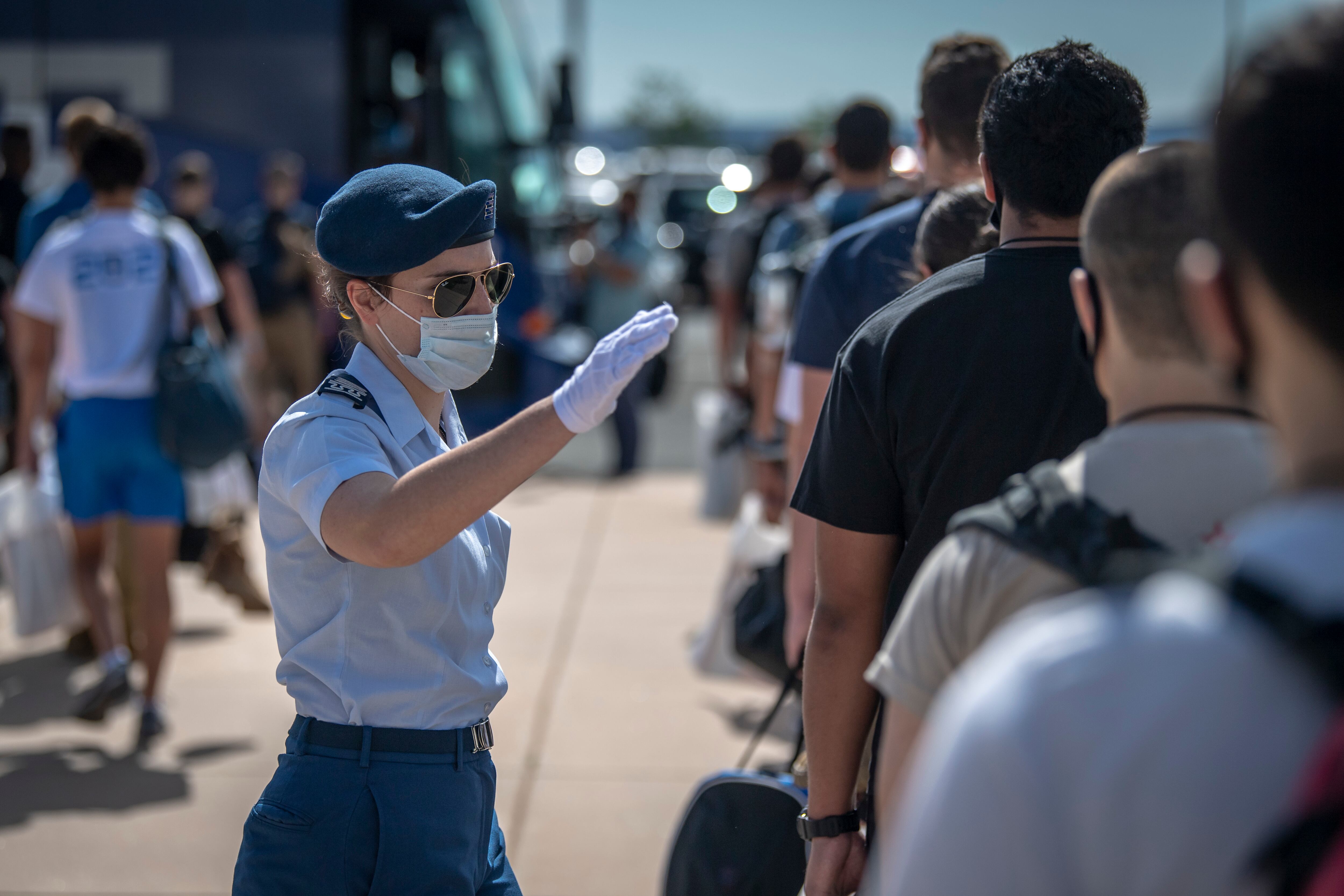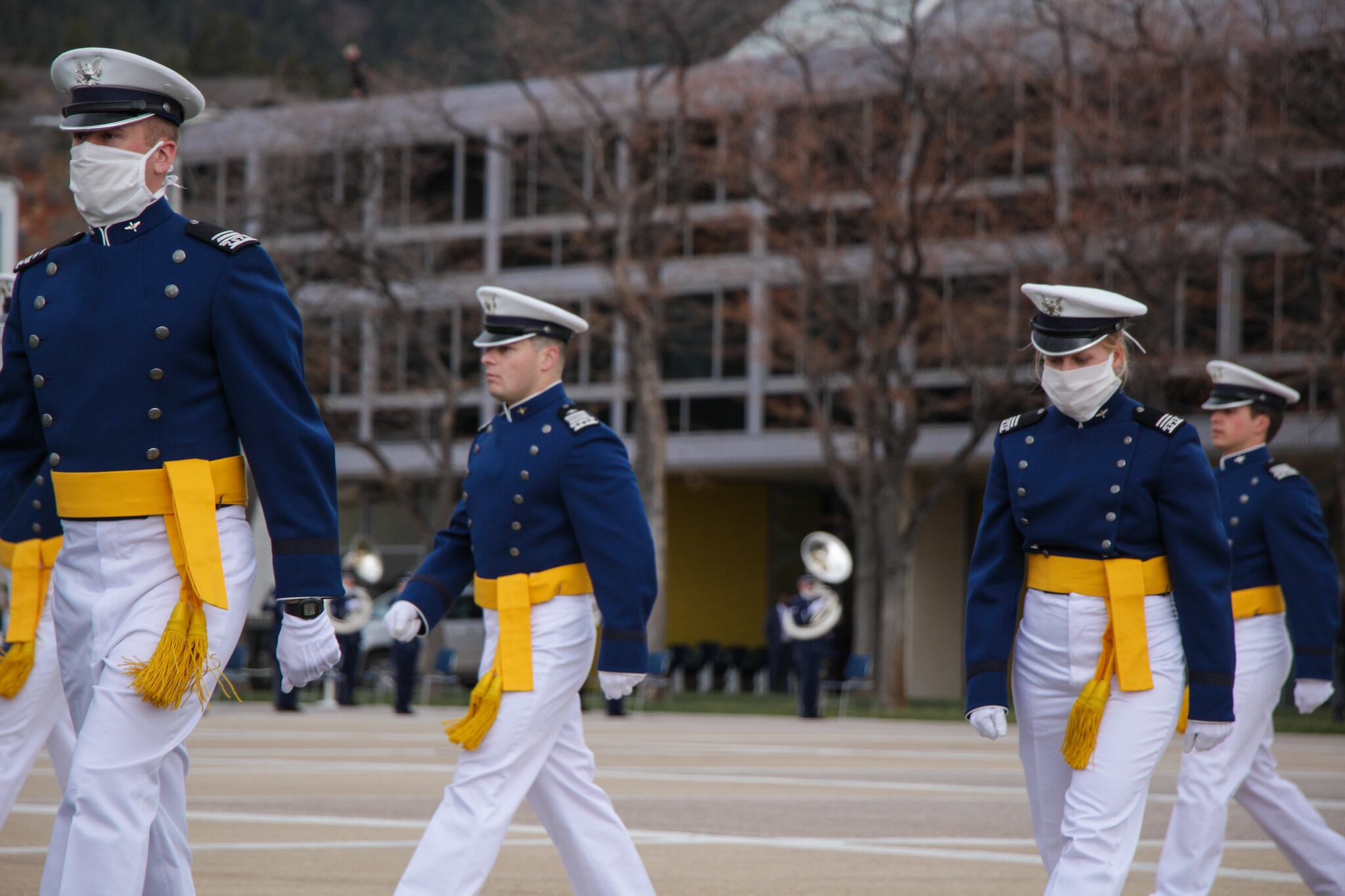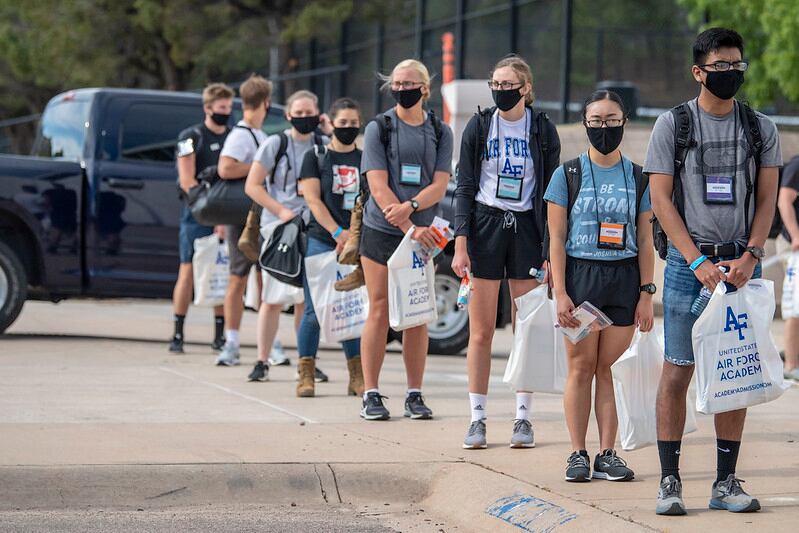The Air Force Academy said Thursday that it plans to have its entire student body — roughly 4,000 cadets — return to its Colorado Springs, Colorado, campus this fall, despite the ongoing coronavirus pandemic.
In a release, the academy said that by the end of July, it will be one of the first universities in the country to have all of its students back.
As part of the academy’s reopening plan, 400 healthy cadets — one-tenth of its students — will live in hotels off-campus during the fall semester, or possibly longer. Putting those cadets in hotels will free up quarantine and isolation space in the dorms, the academy said.
RELATED

The academy said it had to reopen because it is one of the key sources for training and commissioning new officers, both for the Air Force and Space Force. About 1,000 cadets are graduated and commission each year. Defense Secretary Mark Esper said earlier this year that all military accession sources and training pipelines are mission-essential during the coronavirus crisis.
“The safety of cadets, staff and the entire USAFA community, as well as the Colorado Springs community, remains our number one priority,” the academy said in its release.
But the academy’s announcement comes as the pandemic lingers nationwide, and in some places, has resurged. The unprecedented situation has left schools and universities nationwide grappling with the question of how to resume classes this fall — and whether it is even possible to safely hold some classes in-person. School districts in places like Los Angeles and San Diego, California and Fairfax County, Virginia, in the last two weeks announced that public schools will at least begin the year with no in-person classes.
It will be the first time the entire class of cadets will have been at the academy since mid-March, when the school began dismissing a large segment of its population as the country began locking down due to the coronavirus.
Some cadets have already returned to the academy — particularly the class of 1,145 incoming freshmen who arrived June 25 to begin basic cadet training — and the remaining cadets will return by the end of July.
RELATED

Cadets will be tested for COVID-19 four times in their first two weeks after arriving, the academy said — immediately upon arrival, as well as on days 7, 10 and 14. There will also be random testing of cadets afterward, to try to catch asymptomatic carriers of the coronavirus as soon as possible.
If a cadet displays symptoms of COVID-19, tests positive, or has contact with someone with a positive case of COVID-19, the academy said they will be quarantined and isolated.

And the academy said it will build social distancing space into plans for military training, classes, cadet living arrangements, or other activities.
Classes will start in the middle of August, and include both online and in-person learning, the academy said. When classes are held in-person, they can use “creative solutions” to allow more social distancing, such as holding classes outside, using larger classrooms for smaller classes, and having labs and other hands-on coursework in small groups.
In a follow-up email, the academy said that cadets, faculty and staff will be required to wear face coverings at nearly all times while in Fairchild Hall, the main facility housing classrooms, offices, and the cadet medical and dental clinic. Faculty and staff will be allowed to remove their face coverings while alone in their offices.
To figure out how to bring the whole student body back, the academy created a “Pandemic Math Team” of faculty who are experts in statistics, mathematical modeling, biology, virology and public health. The team also consulted with officials and guidance from the Colorado Department of Public Health, local public health organizations, the Air Force, the Defense Department, and the Centers for Disease Control and Prevention.
Faculty members developed a testing program to lessen the chances of a “runaway” outbreak of COVID-19 at the academy, the release said. And they gave the academy’s leadership tools and guidance on how they can adapt to changing conditions in real time.
Since cadets began being brought in from across the nation, the academy said, the rate of positive cases has stayed within the 1 percent to 2 percent that was expected. At that rate, the academy can still properly house and care for infected cadets, and those who had contact with them, in the quarantine and isolation space set aside for them.
The healthy cadets staying in off-base hotels will still be held to the same military training and academic standards and safety protocols as other cadets, the academy said. The cadets will be supervised at the hotels, but the academy is still figuring out how best to transport and feed them.
Are you a cadet, a family member of a cadet, or a member of the academy’s faculty and staff? And are you comfortable with the academy’s plans to resume teaching all cadets there this fall? We want to hear from you. Email Stephen Losey at slosey@airforcetimes.com.
Stephen Losey is the air warfare reporter for Defense News. He previously covered leadership and personnel issues at Air Force Times, and the Pentagon, special operations and air warfare at Military.com. He has traveled to the Middle East to cover U.S. Air Force operations.




